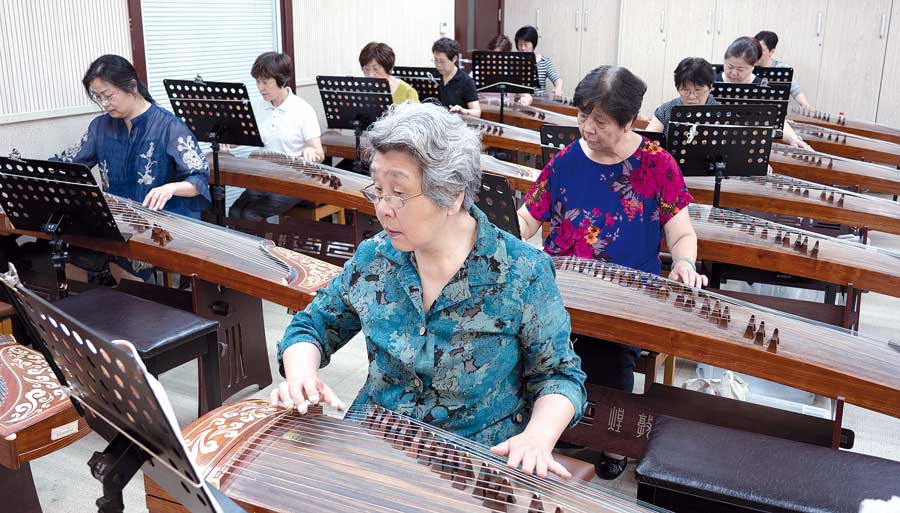Nation takes good care of age-old problem


Increased attention paid to healthcare for the elderly
Beijing native Jia Jun, 61, grew up in a house in a hutong, or alleyway, near Hufang Bridge in Xicheng district, where her mother has lived for more than 80 years.
In 1997, her mother, who was then 68, suddenly started vomiting and then fainted. A neighbor drove her to a hospital emergency center. After an examination, she was diagnosed with cerebral hemorrhage, which left her in a coma for four days.
Several years later, Jia's mother had a stroke at home. Jia, who was there at the time, pushed her to the hospital in a wheelchair.
"My mother is now 93. In the past 20 years, she has been hospitalized four times because of different medical problems," Jia said.
"I had been taking her to see a doctor regularly, but when she was in her 80s, she was diagnosed with chronic obstructive pulmonary disease. Since then, I have been afraid to take her to the hospital when it's extremely hot or cold in Beijing in case her condition worsens."
Jia, who retired as a factory worker when she was 41 to take care of her mother, found a job in a restaurant five minutes from home. "Now, if my mom phones me, I can pop home quickly to see her," she said.
Four years ago, after being diagnosed with diabetes, her mother was prescribed drugs to treat hypoglycemia. She now has at least five chronic diseases and takes a dozen pills after each meal.
Meanwhile, in early March, Jia's father-in-law, who is 90 and has dementia, had a fall during the night. Since then, Jia and her husband have been afraid to let him live on his own, and she now regularly attends to him.
Jia said, "If I want to take good care of my mother and my father-in-law, I need to do more than just earn money, but if I can't make money, what will happen to them?"
Figures released by the National Bureau of Statistics on Jan 17 show there were more than 280 million people age 60 or older in China by the end of last year, accounting for 19.8 percent of the population. According to the UN, a country is defined as "aging" when more than 10 percent of its population is age 60 or older, and "aged" when the proportion is 20 percent or higher.
Liu Xiaohong, chief physician in the geriatrics department at Peking Union Medical College Hospital, said 50 percent of people who are 65 or older in China have at least three chronic conditions. Liu has been engaged in geriatrics studies for more than 20 years.
Figures from the National Health Commission, or NHC, show that more than 78 percent of seniors who are 60 or older have at least one chronic disease.
Although the illnesses Jia's mother and father-in-law have contracted are chronic, they are not immediately life-threatening. However, the psychological impact of long-term care for the older generation, and the changes Jia has faced in her life and work, highlight the need to rethink care for the elderly.
Aging and death are both inevitable, but improvements can be made to seniors' self-sufficiency to a certain degree.
In China, medical insurance for acute care used to be specialized, categorized by organs, and was not specifically for the elderly.
As a result, hospitals needed to develop a seniors-friendly environment to conduct a comprehensive geriatric assessment of such patients, manage them through an interdisciplinary team, and solve reversible problems in aging to allow seniors to take care of themselves and return home.
According to the NHC, by the end of 2021, China had set up six national clinical research centers for diseases among geriatrics, and medicine departments for geriatrics had been established in more than 4,600 public hospitals at secondary level or higher.
























